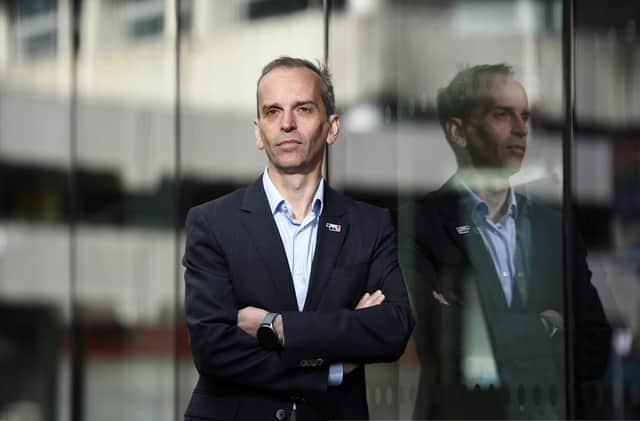From farm to plate with 5G data, that's food for thought - Paul Coffey


Bringing together agriculture, fisheries, manufacturing, distilleries, brewing and transport logistics it is a sector that needs intelligent and resilient supply chains that are risk-aware, secure and adaptive. This is where 5G can make a real difference as it can connect multiple suppliers and customers using advanced connectivity.Food supply chains had their soft underbelly exposed with farmers, distributors and sellers often struggling to deal with increased demands in certain foods during the pandemic. The ‘just in time’ delivery system which aims to reduce the need for large warehouses often meant there was stock, but in the wrong place. This is exacerbated by the lack of workers to pick crops and food security was also in question.We recently hosted Andrew Bailey, Governor of the Bank of England, to our live 5G innovation hub in Dumfries. The aim of the visit was to showcase the role that technology can play in enhancing the contribution rural communities, like Dumfries and Galloway, can have on the wider economy. We were able to demonstrate how agriculture can be re-imagined by using industrial automation, AI video applications, drones and IoT sensing technologies.The Centre is in very early-stage discussions with partners on use cases that benefit from the characteristics of 5G to help in the food chain and net zero/carbon reduction in agriculture. Some examples include discussing the use of data rich imaging for the early identification of health issues in young livestock and monitoring of methane emissions of livestock in a bid to reduce them as part of greenhouse gas reduction.We were encouraged by Mr Bailey’s words of support and acknowledgement of the positive impacts 5G technology will have for businesses particularly in rural parts of the economy. He recognised the role 5G will have to enable organisations to be more agile, efficient and responsive to change.As well as agriculture, we are working across the wider food and drink sector to demonstrate the need for more resilient supply chains and enable businesses to adapt quickly to changes in demand. 5G offers the opportunity for businesses to connect with suppliers and customers in real time, which will help them to manage the flow of goods and services more effectively.Organisations that are able to make their supply chains 5G-ready will be well placed to reap the benefits of this new technology. They will be able to respond quickly to changes in demand.5G can help achieve better visibility across supply chains instead of using manual controls to track and trace products. With digital technology logistics companies supporting the food and drinks industry can label, track and record orders automatically, this can help with product freshness and support the ‘just in time’ approach preferred by food businesses.We can see automation in salmon farming and whisky via private networks not only completing routine tasks and quality checks. But providing valuable data to feed into an integrated system to manage high volumes of production, predict and avoid bottlenecks and simplify processes to create efficiencies and cost savings.There is an option for some operations to be handled with unmanned vehicles powered by automated remote control via cloud based systems. 5G can also support systems to streamline ordering processes.This data driven innovation can help demonstrate food provenance, integrity and product security. In this sector digital supply chains powered by 5G will strengthen resilience, efficiency and reduce both cost and risk and help build a sustainable economy. Tracking food and drink from farm to plate, requires increased automation with data driven by 5G and business. And that’s food for thought.
Paul Coffey, CEO, The Scotland 5G Centre
Comments
Want to join the conversation? Please or to comment on this article.